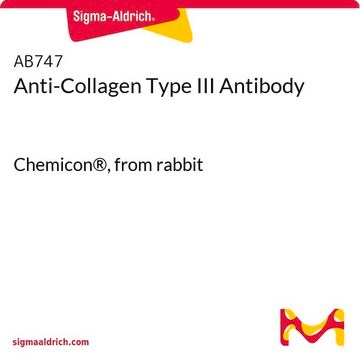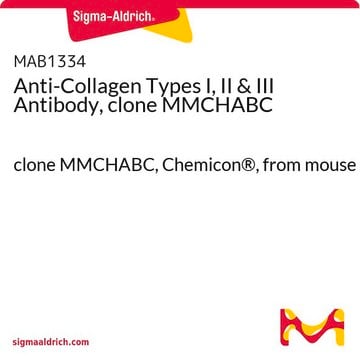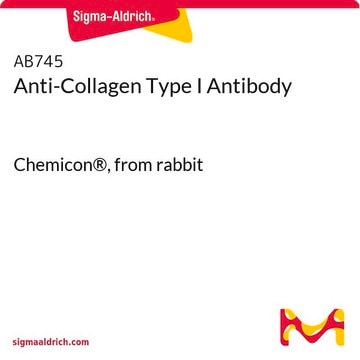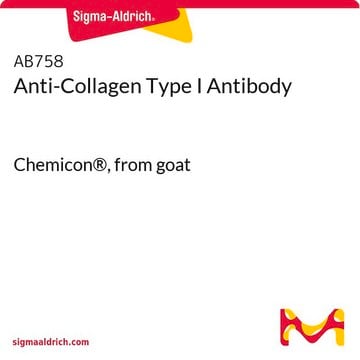Fontos dokumentumok
C7805
Anti-Collagen Type III (COL3A1) Antibody
mouse monoclonal, FH-7A
Szinonimák:
Anti-Collagen III antibody
About This Item
Javasolt termékek
Terméknév
Monoclonal Anti-Collagen, Type III antibody produced in mouse, clone FH-7A, ascites fluid
biológiai forrás
mouse
Minőségi szint
konjugátum
unconjugated
antitest forma
ascites fluid
antitest terméktípus
primary antibodies
klón
FH-7A, monoclonal
molekulatömeg
antigen 70 kDa
tartalmaz
15 mM sodium azide
faj reaktivitás
human, rat
technika/technikák
dot blot: suitable
immunohistochemistry (frozen sections): 1-4,000 using frozen sections of human skin
indirect ELISA: suitable
western blot: suitable using a denatured-reduced preparation
izotípus
IgG1
UniProt elérési szám
kiszállítva
dry ice
tárolási hőmérséklet
−20°C
célzott transzláció utáni módosítás
unmodified
Géninformáció
human ... COL3A1(1281)
rat ... Col3a1(84032)
Általános leírás
Egyediség
Immunogén
Alkalmazás
Biokémiai/fiziológiai hatások
Jogi nyilatkozat
Nem találja a megfelelő terméket?
Próbálja ki a Termékválasztó eszköz. eszközt
javasolt
Tárolási osztály kódja
10 - Combustible liquids
WGK
WGK 2
Lobbanási pont (F)
Not applicable
Lobbanási pont (C)
Not applicable
Válasszon a legfrissebb verziók közül:
Analitikai tanúsítványok (COA)
Nem találja a megfelelő verziót?
Ha egy adott verzióra van szüksége, a tétel- vagy cikkszám alapján rákereshet egy adott tanúsítványra.
Már rendelkezik ezzel a termékkel?
Az Ön által nemrégiben megvásárolt termékekre vonatkozó dokumentumokat a Dokumentumtárban találja.
Az ügyfelek ezeket is megtekintették
Tudóscsoportunk valamennyi kutatási területen rendelkezik tapasztalattal, beleértve az élettudományt, az anyagtudományt, a kémiai szintézist, a kromatográfiát, az analitikát és még sok más területet.
Lépjen kapcsolatba a szaktanácsadással
